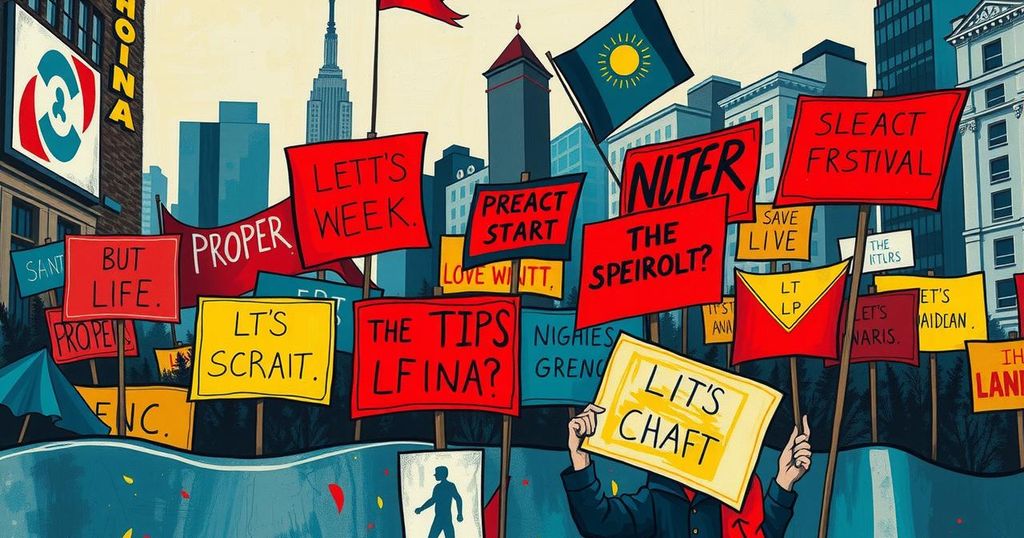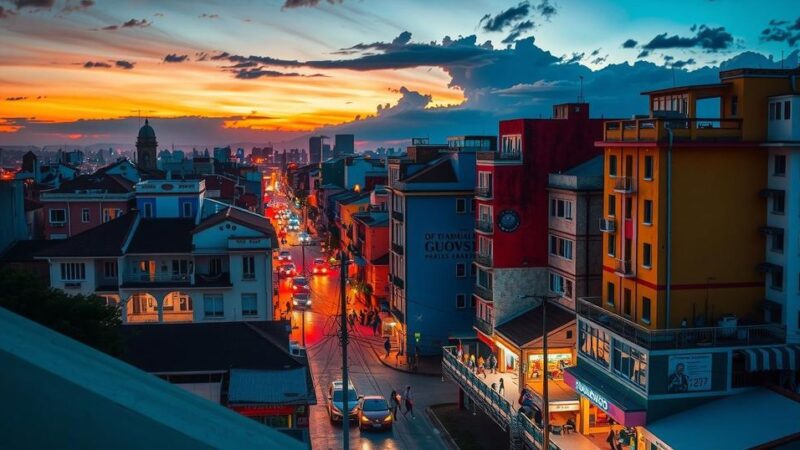Political instability in Zimbabwe due to President Mnangagwa’s potential third term has raised concerns for South Africa, including economic migration as many Zimbabweans view SA as a sanctuary for employment opportunities. The power struggles within Zanu-PF exacerbate the situation, highlighting the urgency for SA to address the potential influx of refugees.
Political unrest in Zimbabwe related to calls for President Emmerson Mnangagwa’s resignation poses a significant challenge for South Africa (SA). Despite Zimbabwe’s unemployment and poverty rates being worse than those in SA, many Zimbabweans view SA as a land of opportunity. Recent governmental reports indicate a sharp increase in the deportation of Zimbabweans, yet the desperation to seek better prospects persists.
Sothini Ncube, a psychology graduate and street vendor from Bulawayo, illustrates this predicament, stating, “Why should I stay home when it’s clear 2025 and beyond will be a waste for me?” He expresses despair over the lack of basic necessities and government efforts towards poverty alleviation, suggesting that Zimbabweans may feel compelled to migrate to SA for economic survival and better healthcare access.
In light of escalating political tensions within Zanu-PF, the ruling party, many Zimbabweans may opt to migrate. Stevenson Dlamini, an economist, cautions that SA should be wary of the situation in Zimbabwe, as it could ultimately exert pressure on its public services and infrastructure. SA has regularly encountered challenges linked to undocumented Zimbabwean refugees, complicating its own socio-economic landscape.
Political dynamics within Zanu-PF are contributing to instability. A faction supporting Mnangagwa endorsed a motion at the October conference to extend his term, either for two years or to amend the constitution for a potential third term spanning until 2034. While Mnangagwa denies intentions for a prolonged presidency, he has not deterred proponents of constitutional reform.
Blessed Geza, formerly a Zanu-PF central committee member opposing Mnangagwa’s term extension, has emerged as a notable dissenting voice. Geza, who claims that a group he labels as the “looting mafia” is undermining the constitution, now calls for protests against Mnangagwa’s rule. He advocates for the succession of his deputy, Constantino Chiwenga, though Chiwenga has remained silent on this issue.
The power struggle has led to significant personnel changes in Zimbabwe’s security apparatus, with Mnangagwa aiming to consolidate control ahead of planned protests. Party spokesperson Christopher Mutsvangwa claimed these shifts were necessary to prevent an unconstitutional power transition.
In January, key security officials were replaced, notably including changes in the police and intelligence ranks. These alterations culminated just before the March 31 demonstrations intended to challenge the president’s authority and reflect a substantive reshape of the security sector since the 2017 coup that originally brought Mnangagwa to the presidency.
In summary, political unrest in Zimbabwe has implications for South Africa, particularly concerning a potential influx of Zimbabweans seeking refuge and better opportunities. While Mnangagwa’s authority is challenged both within and outside his party, the socioeconomic conditions driving migration persist. Consequently, SA must prepare for the repercussions of Zimbabwe’s ongoing instability and consider the broader impact on regional dynamics.
Original Source: www.newzimbabwe.com






